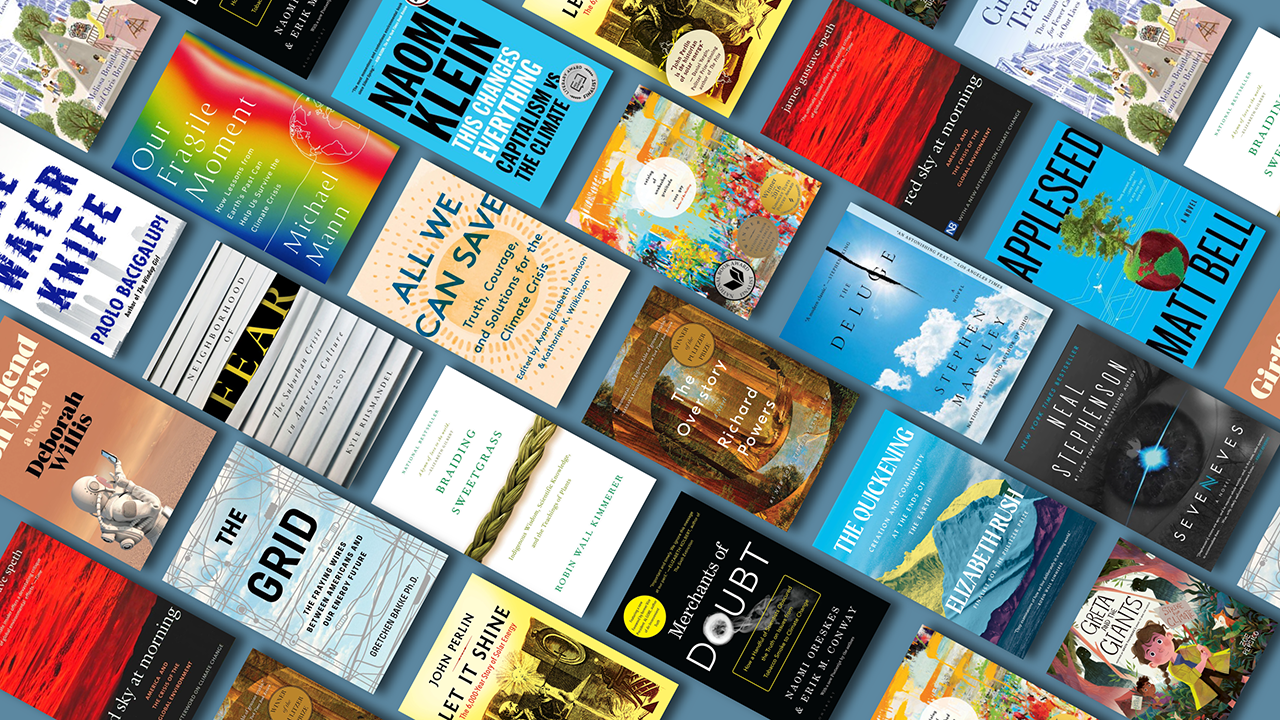
As temperatures drop and snow blankets Minnesota, it’s officially cozy season—a perfect time to nestle into an armchair and embark on a literary journey. At Fresh Energy, where our days are dedicated to driving ambitious clean energy policies for Minnesota and the Midwest, our team revels in the power of words—especially when it comes to climate change.
Now, you might think that after a day immersed in climate work, reading about it would be the last thing on our minds. And that’s definitely true for some staff, who avoid climate books because they can be too “real,” unhelpful, or challenging after a long day’s work. But other staff members love climate books, exploring how both climate fiction (dubbed “cli-fi”) and non-fiction books can offer new insights about climate challenges and solutions, as well as how climate change is affecting our lives.
Regardless of our preferences, we’ve pooled our diverse reading tastes to curate a list of our favorite cli-fi and climate non-fiction books. Some directly tackle climate change, while others are only tangentially related.
Discover our picks below, handpicked by Fresh Energy’s own climate aficionados, and add a touch of literary warmth to your reading list. Thank you to Fresh Energy staff and friends for contributing to this blog post!
“Braiding Sweetgrass” by Robin Wall Kimmerer

Kimmerer is a botanist and member of the Citizen Potawatomi Nation, and she combines these lenses to offer a reciprocal relationship between humans and our wider ecological environment. She writes about ecology, the land, and indigenous knowledge, weaving in personal life stories in touching, poetic language. Themes of gratitude, harmony, and respect for our environment are present throughout the book, and every chapter is filled with wisdom on how to lead a life more aligned with the planet.
“Robin covers so much–American history related to Indigenous nations, plant education, Indigenous beliefs and practices around human relationships to the natural world, and even wisdom on parenting. I am loving this book, and it is changing how I look at the natural world and our consumer-based systems.” –Susan Hellstrom, community engagement associate
Also recommended by Christine McCormick, digital communications associate, and Caitlin Eichten, senior policy associate, buildings
“The Deluge” by Stephen Markley
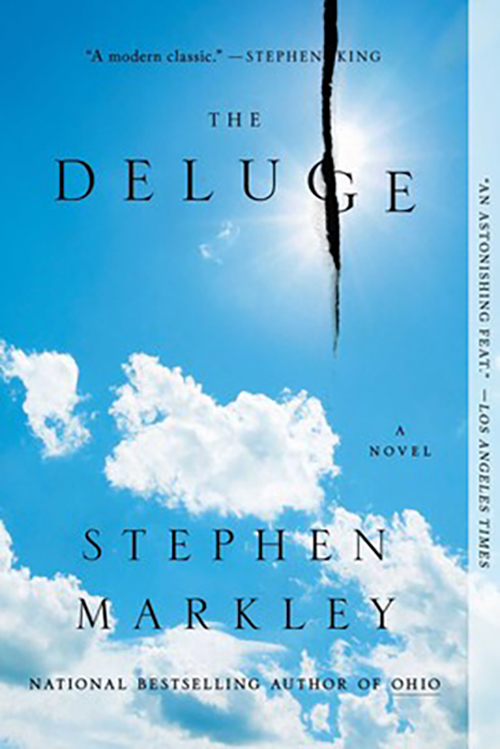
If you’re as interested in climate policy and politics as much as Fresh Energy staff, this novel will be right up your alley. Minneapolis writer Stephen Markley begins “The Deluge” in 2013, in which climate scientists are studying increasingly dire models of climate change, political will for climate action is becoming more partisan, and violent weather is becoming the norm. (Sound familiar?) It then sprawls into the future through 2040, following a cast of characters all acting on the climate crisis: a climate scientist that becomes a global figurehead, an environmental activist mobilizing a grassroots network, a veteran-turned-eco-terrorist targeting the fossil fuel industry, and political operatives trying to pass meaningful climate policy amidst partisanship.
“This epic novel grapples with questions of what’s effective, what’s moral, and what’s complicit when it comes to tackling climate change. Characters represent various views and approaches to addressing the crisis, from policy advocacy to eco-terrorism. Highly recommend.” –Dan Haugen, managing editor, Energy News Network
“This Changes Everything: Capitalism vs. the Climate” by Naomi Klein
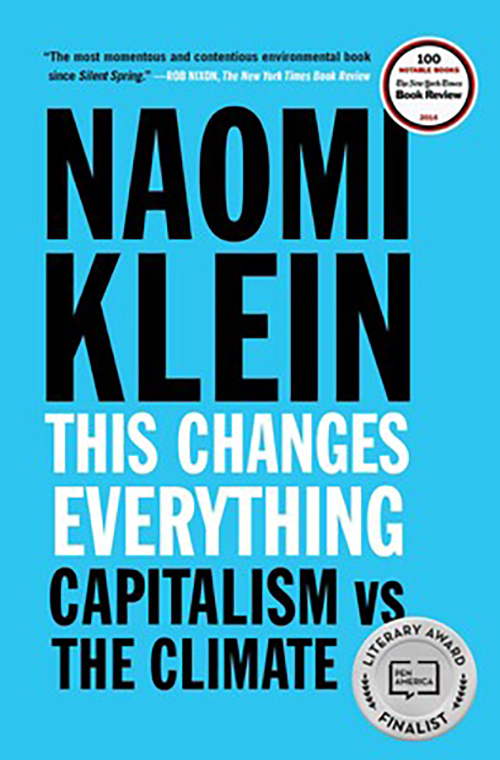
This non-fiction book explores the intersection of climate change and capitalism, arguing that addressing the climate crisis requires fundamental changes to our economic and social systems. Klein lays out how globalization and the current economic system exacerbates climate change, and how meaningful solutions will challenge existing power structure and ideologies and prioritize social and environmental justice instead.
“This book puts together how the success of capitalism has always been at the expense of climate, environmental justice, people and ecological balance. It is also a call to action illustrating that the shifts and wins we’ve had so far on climate justice have come from mass movements and collective action and equips you with knowledge and the will to keep fighting.” –Janiece Watts, director of culture and partnerships
“Greta and the Giants” by Zoë Tucker and illustrated by Zoe Persico
This children’s book is about a young girl named Greta who confronts the giants destroying the forest, persuading them to change their ways through peaceful activism instead. Inspired by the climate crisis activism of Nobel Peace Prize nominee Greta Thunberg, this book imparts a message of empowerment and collective action in addressing environmental degradation in an accessible way for young readers.
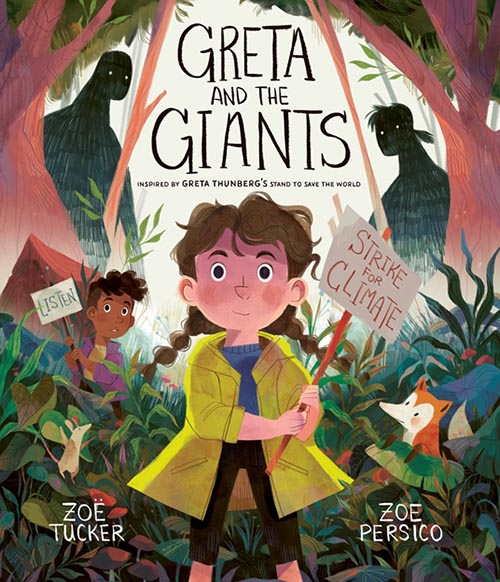
“We love this book for its gorgeous illustrations and its message that you’re never too young to make a difference for the planet. My youngest child is named after Greta Thunberg—as you can imagine, this book is one of my Greta’s favorites!” –Julia Olmstead, executive lead, philanthropy
“Curbing Traffic: The Human Case for Fewer Cars in Our Lives” by Melissa Bruntlett and Chris Bruntlett
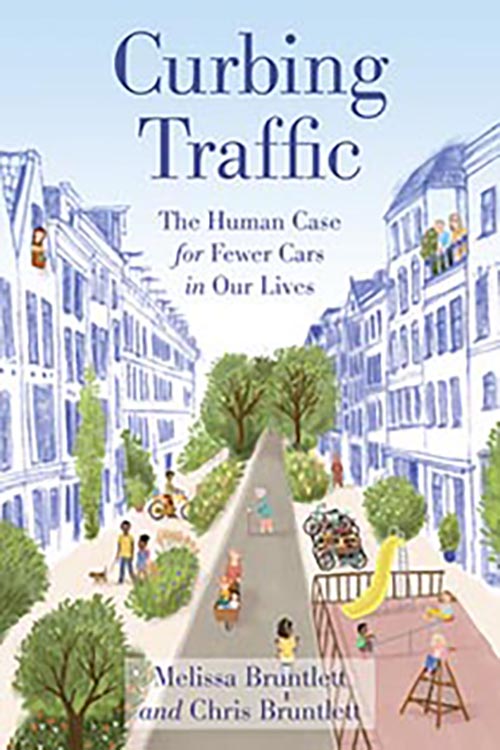
Minnesota’s transportation sector is currently our largest source of greenhouse gas emissions, larger than electrical generation, residential, industrial, and agriculture. That means the way we get around is inextricably linked to climate, and this book provides an overview of how we can reimagine transportation to be better designed for people. Reducing traffic and creating “low-car” cities has a lot of other benefits, too: lowering stress and anxiety levels, improved mental and physical wellbeing, and even increased independence and autonomy within communities.
“This is essentially a high-level manual on how cities can reduce the quantity and speed of traffic. Transportation is a huge part of the greenhouse gas picture in Minnesota, and we all have ways we can get involved, whether by representing our neighborhood at community planning meetings, selecting our next vehicle, or getting more involved with the local infrastructure in our neighborhoods.” -Will Wlizlo, Fresh Energy supporter
“Our Fragile Moment: How Lessons from Earth’s Past Can Help Us Survive the Climate Crisis” by Dr. Michael Mann
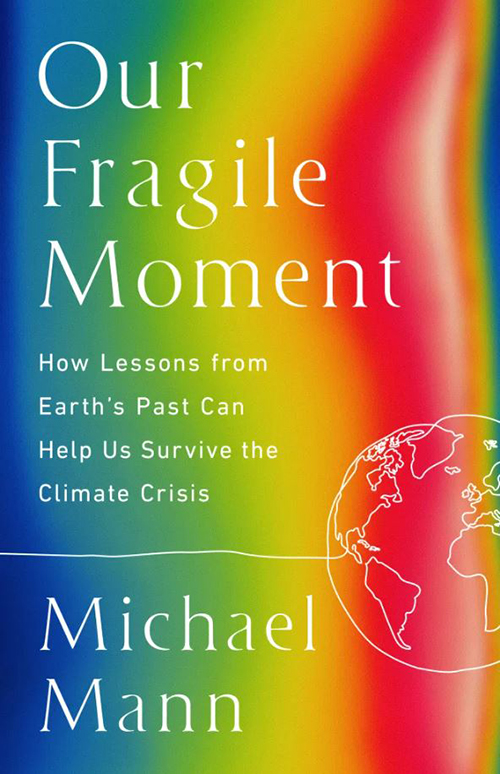
Michael Mann is a renowned climate scientist, and his latest book explores the historical conditions on Earth that have allowed humans to thrive—and how those changing conditions threaten our way of life. Filled with relatable explanations of Earth’s history and its climate, Mann helps readers understand more about the science of climate change and a hopeful message about how we can address it.
“I have enjoyed reading the newest book from the University of Pennsylvania’s climatologist Dr. Michael Mann, and I recommend people begin by reading the concluding Chapter 7. This chapter shares that while the threat of climate change is existential, it’s still mostly in our hands—and we have the power to limit warming and substantially reduce the level of suffering climate disruption have on us.” –J. Drake Hamilton, senior director, science policy
“Seveneves” by Neal Stephenson
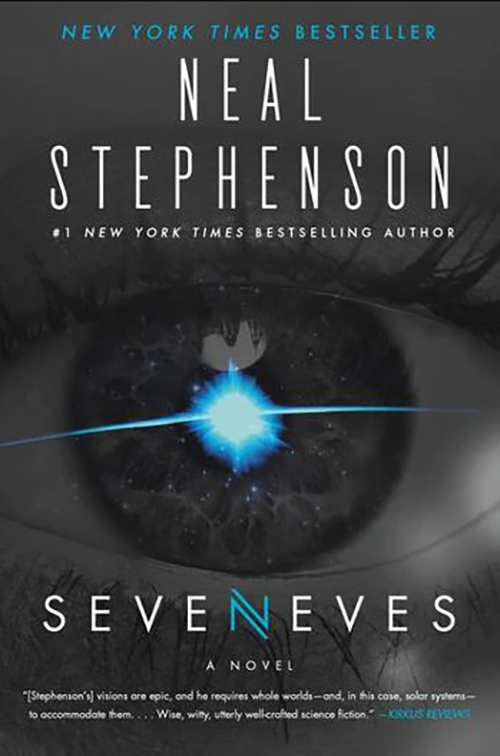
In this doorstop-sized book of science fiction, the moon suddenly explodes, and humanity must desperately mitigate and adapt to the apocalyptic catastrophe. First, nations collaborate to send a diverse group of individuals to space, struggling to survive as the planet becomes uninhabitable. The second part of the story shifts thousands of years into the future, when humans begin re-populating Earth—and the political and scientific challenges of doing so.
“It’s not quite about climate, but it sure reminds me a ton of it. It’s about what happens when the moon explodes with only two years left for people to live on earth before the moon debris falls from the sky. Then, it explores how we to get enough humans to space and set them up to survive for 10,000 year. Finally, it’s about how those first humans develop systems in space (after Earth is inhospitable) to make that long shot succeed.” –Mike Schowalter, senior manager, wholesale electric grid transition
“Let It Shine: The 6,000-Year Story of Solar Energy” by John Perlin
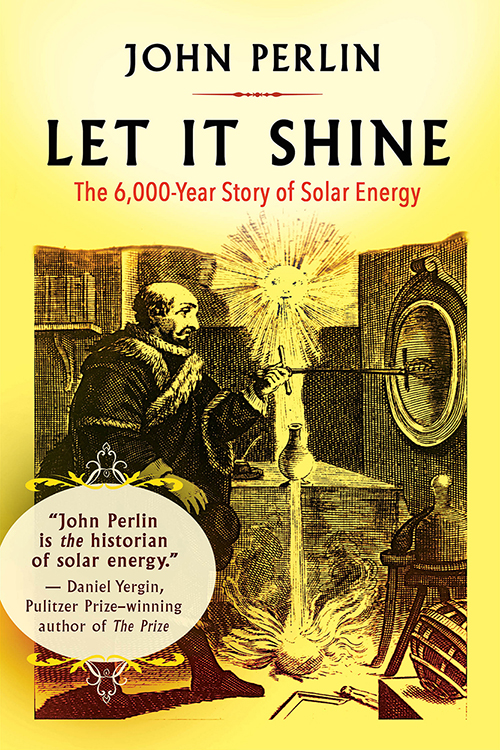
A historical look at humanity’s use of solar power through the ages, this book traces how ancient civilizations from the Bronze Age onwards have used solar energy for different purposes: yang-suis, solar architecture and heating, solar engines, and today’s solar panels for electricity generation. This is a great book for anyone interested in the history and uses of solar energy through millennia.
“If I had a million bucks I would buy this book for many, many skeptics and say, ‘Ha! Solar is not a new thing. It works, and it’s been around longer than the internal combustion engine!’” –John Vaughn, managing director, community development and finance
“The Water Knife” by Paolo Bacigalupi
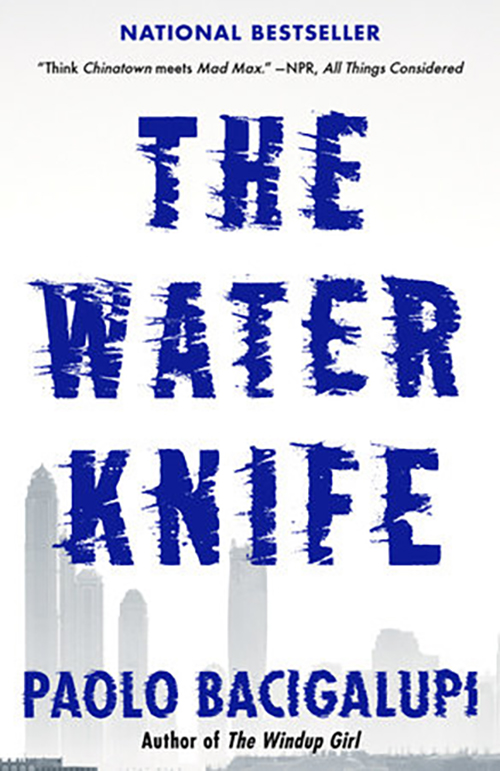
In the near-future dystopic American Southwest, water shortages have realigned society into haves and have-nots, with powerful entities living comfortably in sealed and air-conditioned high-rises and everyday folks fighting for access to food, water, and making a living. The story follows a journalist untangling the local power brokers, as well as a “water knife” character employed to secure water rights through whatever means necessary.
“This is a good way to indulge your deepest fears and be glad we haven’t gotten to that place.” –Allen Gleckner, executive lead, policy and programs
“I’ve read a dozen or so cli-fi thrillers, and this one’s my favorite. The tone, settings, and problems explored in the book all make it very memorable to me years later—and I’m a reader with a short memory!” –Isak Kvam, senior communications associate, writer
“The Quickening: Creation and Community at the Ends of the Earth” by Elizabeth Rush
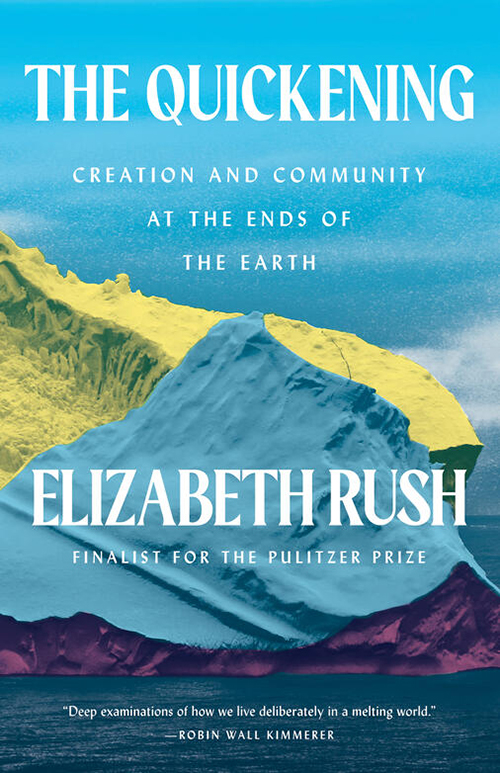
In this work of non-fiction, 57 scientists and crewmembers journey to the Thwaites Glacier in Antarctica, a place never visited by humans that is expected to have catastrophic implications for sea-level rise as it melts, to imagine a better future for humanity. What the novel really explores, though, is what it means to bring a child into this world at a time of such radical change. This book collects a range of diverse, female voices to bring together ideas of motherhood, community, science, friendship, and love.
“The Quickening explores themes of collective storytelling, motherhood, and local and global climate activism, set against the stark but breathtakingly beautiful Antarctic landscape and the Thwaites, or ‘Doomsday,’ Glacier.” –Margaret Cherne-Hendrick, PhD, senior lead, innovation and impact

On October 13, 2023, Margaret joined author Elizabeth Rush and environmental justice-oriented coordinator Analyah Schlaeger dos Santos at Mill City Museum to discuss “The Quickening” and the power of collective storytelling and community in facing the climate crisis. The evening included photographs from Rush’s voyage to Antarctica, as well as a conversation with Margaret and Analyah about climate activism in the Twin Cities.
“Appleseed” by Matt Bell
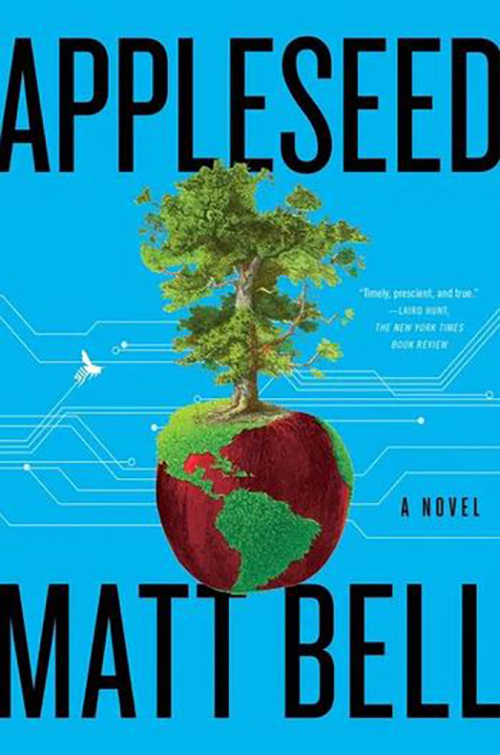
Blending epic storytelling with thrilling tech-driven twists, “Appleseed” takes readers on a riveting journey across three distinct timelines. From the eighteenth-century Midwest, where two brothers plant the first apple orchards in Ohio, to a near-future world dominated by a singular mega-corporation amidst climate change chaos, and finally, a chilling glimpse a thousand years in the future when North America is encased in ice sheets once again. As the narrative unfolds, the novel grapples with the captivating intersections of AI, genetic engineering, power dynamics, and morality, raising poignant questions about the delicate equilibrium between innovation and responsibility.
“What this novel does in addition to being very imaginative and a pleasure to read is it connects climate change to the founding idea of Manifest Destiny and prosperity. It draws on early-frontier mythology and aspects of the supernatural to represent the unknown of the frontier and the future. It felt like the most relevant climate book that I’ve come across in a long time, and it’s an adventurous read.” -Will Wlizlo, Fresh Energy supporter
“The Grid: The Fraying Wires Between Americans and Our Energy Future” by Gretchen Bakke
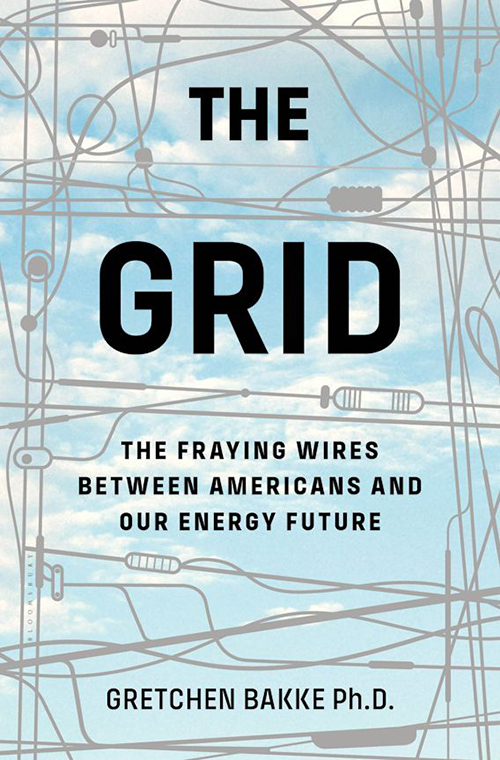
North America’s electric grid is considered the largest machine in the world, and while it was considered an engineering triumph when it was built in the 1900s, it’s failing to meet our present needs. This book delves into the intricacies of the electrical grid in a digestible way (seriously!) and explores its history, infrastructure, and the challenges we face in both maintaining and developing it for a sustainable, resilient future.
“Author Gretchen Bakke provides engaging metaphors and utilizes storytelling while weaving in facts about the grid, which many consider to be a dry topic (sorry, Mike!). Overall, the book is far more interesting than expected and leaves the reader with an understanding of what Bakke refers to as the ‘world’s largest machine.’ Potential readers should note that many of the numbers she cites are outdated (the book was published in 2016), but I would say the historical context alone makes the book a worthy read!” –Christine McCormick, digital communications associate
“Merchants of Doubt: How a Handful of Scientists Obscured the Truth on Issues from Tobacco Smoke to Global Warming” by Naomi Oreskes and Erik M. Conway
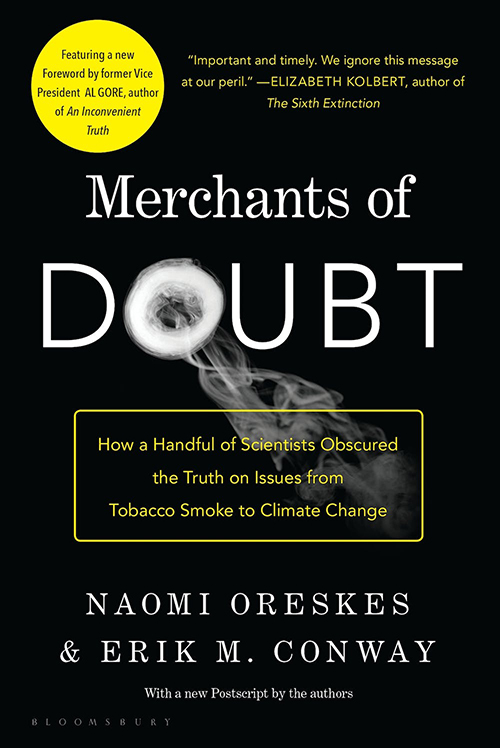
This book explores how a small minority of scientists distorted public understanding of scientific issues, from the use of nuclear weapons to tobacco and climate change, by deliberately sowing doubt about science and promoting misinformation. It’s meticulously researched, delving into decades-old committees and reports to show the tactics special interests have used to benefit their industry and its impact on public policy and the broader public.
“I’m not sure if I find it more relieving or infuriating that the hurdles of fully addressing climate change rest on overcoming the misinformation from industries that profit off denying or slowing climate solutions. Either way, this was an informative read into a long history of special interests misleading the public when it comes to tobacco, climate change, and more.” –Isak Kvam, senior communications associate, writer
“The Overstory” by Richard Powers
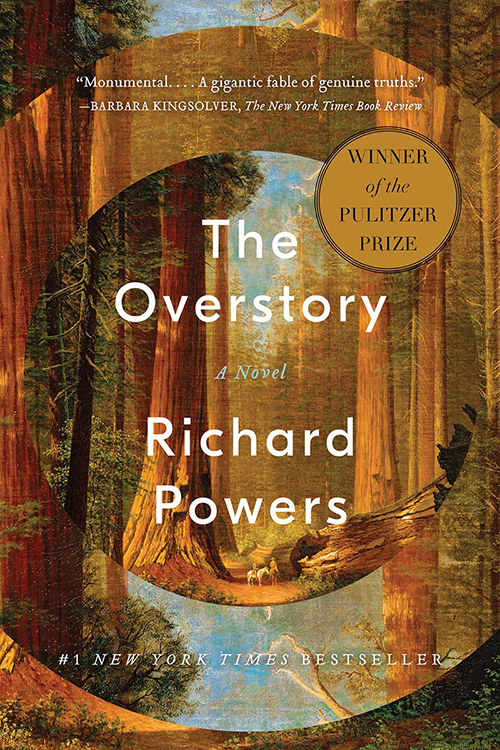
This thick novel won the 2019 Pulitzer Prize and weaves together nine different characters that are all profoundly connected to trees and forests. The narrative explores each character’s unique background and eventually coalesces around them forming a community of environmental activism with differing beliefs on how to best advocate for ecological interconnectedness and impact on the environment.
“I love reading braided stories, where different characters weave in and out of each other’s storylines, and the characters in this book are so memorable. Every character gets their own chapter at the beginning, and each could be its own short story, but weaving them together as they fight for what they believe is a better future creates a sum that’s greater than its parts.” –Isak Kvam, senior communications associate, writer
“All We Can Save: Truth, Courage, and Solutions for the Climate Crisis” edited by Ayana Elizabeth Johnson and Katharine K. Wilkinson
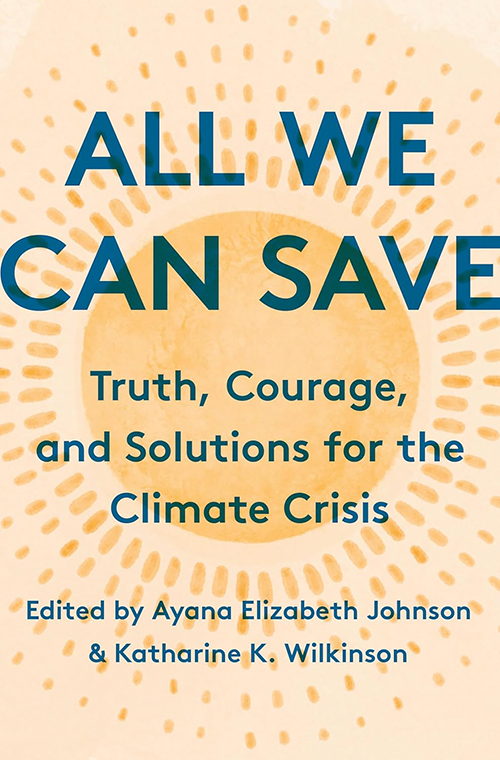
This anthology of essays and poetry about climate change and environmental activism brings together a diverse set of voices, all women, to address challenges and solutions to climate. Each piece incorporates science, policy, personal narratives, or community engagement to breathe fresh air into the meaningful actions we’re taking to address environmental issues.
“This is a powerful and inspiring read that features a diverse compilation of women’s voices in the climate movement. I’m also looking forward to Dr. Ayana Elizabeth Johnson’s new book, ‘What If We Get It Right?: Visions of Climate Futures.’” –Caitlin Eichten, senior policy associate, buildings
“Girlfriend on Mars” by Deborah Willis

This lighter sci-fi book begins with an absurd plot: Two people are selected to star in a new reality TV show in which they’ll be sent to Mars and begin terraforming the planet for future reality TV stars to inhabit. Incorporating themes of truth and misinformation in media as well as satirical jabs at consumerism and our obsession with social media, this book is a playful and insightful into our society.
“I haven’t read anything like this before, and it was a page-turner. It also had some very poignant moments including existential dread about climate change: Why people want to leave the planet for Mars, and why people shouldn’t want to.” –Jo Olson, lead director, communications and engagement
“Neighborhood of Fear: The Suburban Crisis in American Culture, 1975-2001″ by Kyle Riismandel
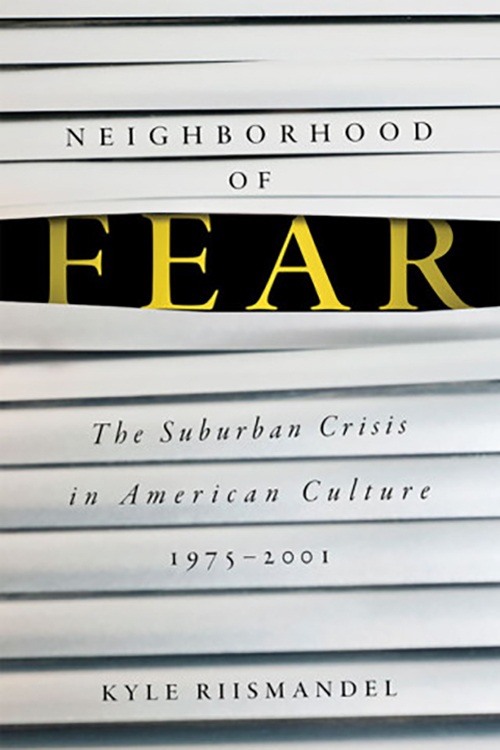
This academic book describes the fascinating history of suburban buildout in America as well as the popular culture from the time period that interacted with it. While the book examines the intricacies of roadways, infrastructure, and regional planning, it also intertwines the evolution of popular culture: the rise of cable television, video games, and palpable fears of kidnappings and crime that transformed suburban neighborhoods. From “Not in My Backyard” politics to the surge in self-protection instincts, Riismandel illuminates the nexus of fear, social dynamics, and our physical surroundings to create a book that’s not just about city planning, but how fear can shape our politics, livelihoods, and the fabric of our neighborhoods.
“As a child of the 90s, I found it fun to revisit some of the media that I grew up watching. The thing I really like about this book is that it describes a visceral conflict in transportation and climate: the mindset difference between conservation and decarbonization, and how the politics of that conversation are baked into our urban form, and why they’re still politically vexing.” -Will Wlizlo, Fresh Energy supporter
“Catalog of Unabashed Gratitude” by Ross Gay
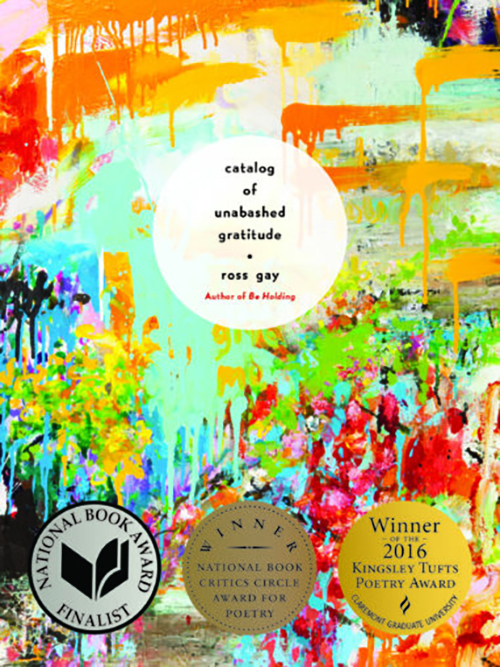
Ross Gay practices finding joy and gratitude in each day, and that’s a serious “practice” to be honed in today’s world full of problems and hardships. This poem celebrates everyday life experiences: helping a turtle cross the road, using spent brewery grain for compost in Gay’s community gardens, watering a peach tree to protect its fruit from the frost. And its ending—yes, I’ll spoil it—captures the sentiment so well: “’it’s much worse than we think,/and sooner;’ to whom I said/’no duh child in my dreams,’ what do you think/this singing and shuddering is/what this screaming and reaching and dancing/and crying is, other than loving/what every second goes away?/Goodbye, I mean to say./And thank you. Every day.”
“I think when we’re advocating for a livable climate, it’s important to remember what we’re working for, and this poem is filled to the brim with joy-filled moments of precisely that. Highly recommend listening to Ross Gay read it with a Bon Iver collab in this video.” –Isak Kvam, senior communications associate, writer
“Red Sky at Morning: America and the Crisis of the Global Environment” by James Gustave Speth
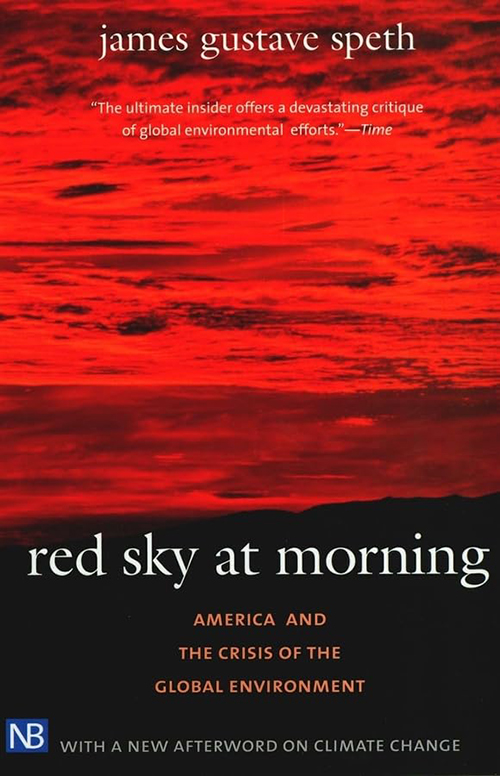
This comprehensive examination of environmental challenges covers some hefty topics: climate change, biodiversity loss, deforestation, water shortages, resource depletion, and more. Speth critiques the political and economic systems that have led to these environmental challenges and offers new strategies for addressing them.
“I think I read this in 2007, and while I’m not sure how it holds up 17 years later, it put me over the edge in deciding I should go to law school and work on climate.” –Allen Gleckner, executive lead, policy and programs
“Parable of the Sower” by Octavia E. Butler
This must-read piece of speculative fiction envisions a post-apocalyptical, climate-disrupted future marked by social and environmental collapse. The protagonist, Lauren Olamina, possesses a unique empathic ability as she navigates the challenges of a crumbling society. Against a backdrop of social breakdown and the rise of extremism, the narrative explores themes of resilience and community. Butler’s storytelling paints a vivid picture of a world teetering on the edge, offering commentary on the human condition and the potential for hope amidst adversity.

“Released in 1993, this book is particularly prescient, starting in 2024. It’s chilling to read, especially in the shadow of the COVID-19 pandemic, and this story not only predicts many social changes that will ring true with modern readers, but brings to life the young protagonist as she makes meaning, builds community, and finds a way forward.” –Eric Fowler, senior policy associate, buildings
